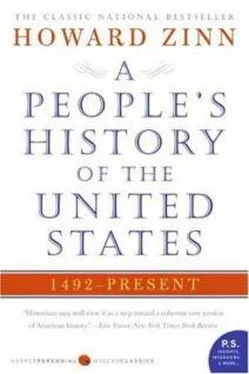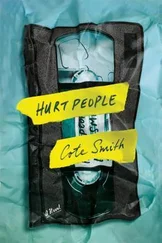Howard Zinn - A People
Здесь есть возможность читать онлайн «Howard Zinn - A People» весь текст электронной книги совершенно бесплатно (целиком полную версию без сокращений). В некоторых случаях можно слушать аудио, скачать через торрент в формате fb2 и присутствует краткое содержание. Издательство: Harper-Collins, Жанр: Фэнтези, на английском языке. Описание произведения, (предисловие) а так же отзывы посетителей доступны на портале библиотеки ЛибКат.
- Название:A People
- Автор:
- Издательство:Harper-Collins
- Жанр:
- Год:неизвестен
- ISBN:нет данных
- Рейтинг книги:4 / 5. Голосов: 1
-
Избранное:Добавить в избранное
- Отзывы:
-
Ваша оценка:
- 80
- 1
- 2
- 3
- 4
- 5
A People: краткое содержание, описание и аннотация
Предлагаем к чтению аннотацию, описание, краткое содержание или предисловие (зависит от того, что написал сам автор книги «A People»). Если вы не нашли необходимую информацию о книге — напишите в комментариях, мы постараемся отыскать её.
A People — читать онлайн бесплатно полную книгу (весь текст) целиком
Ниже представлен текст книги, разбитый по страницам. Система сохранения места последней прочитанной страницы, позволяет с удобством читать онлайн бесплатно книгу «A People», без необходимости каждый раз заново искать на чём Вы остановились. Поставьте закладку, и сможете в любой момент перейти на страницу, на которой закончили чтение.
Интервал:
Закладка:
Peg Mullen, of Brownsville, Texas, whose son had been killed by "friendly fire" in Vietnam, organized a busload of mothers to protest in Washington, in spite of a warning that her house would be burned down if she persisted.
The actress Margot Kidder ("Lois Lane" in the Superman films), despite the risk to her career, spoke out eloquently against the war.
A basketball player for Seton Hall University in New Jersey refused to wear the American flag on his uniform, and when he became the object of derision for this, he left the team and the university, and returned to his native Italy.
More tragically, a Vietnam veteran in Los Angeles set fire to himself and died, to protest the war.
In Amherst, Massachusetts, a young man carrying a cardboard peace sign knelt on the town common, poured two cans of flammable fluid on himself, struck two matches, and died in the flames. Two hours later, students from nearby universities gathered on the common for a candlelight vigil, and placed peace signs at the site of death. One of the signs read, "Stop this crazy war."
There was no time, as there had been during the Vietnam conflict, for a large antiwar movement to develop in the military. But there were men and women who defied their commanders and refused to participate in the war.
When the first contingents of U.S. troops were being sent to Saudi Arabia, in August of 1990, Corporal Jeff Patterson, a twenty-two-year-old Marine stationed in Hawaii, sat down on the runway of the airfield and refused to board a plane bound for Saudi Arabia. He asked to be discharged from the Marine Corps:
I have come to believe that there are no justified wars… I began to question exactly what I was doing in the Marine Corps about the time I began to read about history. I began to read up on America's support for the murderous regimes of Guatemala, Iran under the Shah, and F.I Salvador… I object to the military use of force against any people, anywhere, any time.
Fourteen Marine Corps reservists at Camp Lejeune, North Carolina, filed for conscientious objector status, despite the prospect of a court-martial for desertion. A lance corporal in the Marines, Erik Larsen, issued a statement:
I declare myself a conscientious objector. Here is my sea bag full of personal gear. Here is my gas mask. I no longer need them. I am no longer a Marine… It, to me, is embarrassing to fight for a way of life in which basic human needs, like a place to sleep, one hot meal a day and some medical attention, cannot even be met in our nation's capital.
Corporal Yolanda Huet-Vaughn, a physician who was a captain in the Army Reserve Medical Corps, a mother of three young children, and a member of the Physicians for Social Responsibility, was called to active duty in December 1990, a month before the start of the war. She replied: "I am refusing orders to be an accomplice in what I consider an immoral, inhumane and unconstitutional act, namely an offensive military mobilization in the Middle East." She was court-martialed, convicted of desertion, and sentenced to 2 1/2 years in prison.
Another soldier, Stephanie Atkinson of Murphysboro, Illinois, refused to report for active duty, saying she thought the U.S. military was in the Persian Gulf solely for economic reasons. She was first placed under house arrest, then given a discharge under "other than honorable conditions."
An Army physician named Harlow Ballard, stationed at Fort Devens in Massachusetts, refused to follow an order to go to Saudi Arabia. "I would rather go to jail than support this war," he said. "I don't believe there is any such thing as a just war."
Over a thousand reservists declared themselves conscientious objectors. A twenty-three-year-old Marine Corps reservist named Rob Calabro was one of them. "My father tells me that he's ashamed of me, he screams at me that he's embarrassed by me. But I believe that killing people is morally wrong. I believe I'm serving my country more by being true to my conscience than by living a lie."
An information network sprang up during the Gulf War to tell what was not being told in the major media. There were alternative newspapers in many cities. There were over a hundred community radio stations, able to reach only a fraction of those tuned in to the major networks but the only sources, during the Gulf War, of critical analyses of the war. An ingenious radio person in Boulder, Colorado, named David Barsamian recorded a speech by Noam Chomsky made at Harvard-a devastating critique of the war. He then sent the cassette out to his network of community stations, which were eager for a point of view different from the official one. Two young men in New Jersey then transcribed the talk, put it in pamphlet form, in a shape easily photocopied, and placed the pamphlets in bookstores all over the country.
After «victorious» wars there is almost always a sobering effect, as the war fervor wears off, and citizens assess the costs and wonder what was gained. War fever was at its height in February 1991. In that month, when people being polled were reminded of the huge costs of the war, only 17 percent said the war was not worth it. Four months later, in June, the figure was 30 percent. In the months that followed, Bush's support in the nation dropped steeply, as economic conditions deteriorated. (And in 1992, with the war spirit evaporated, Bush went down to defeat.).
After the disintegration of the Soviet bloc began in 1989, there had been talk in the United States of a "peace dividend," the opportunity to take billions of dollars from the military budget and use it for human needs. The war in the Gulf became a convenient excuse for the government determined to stop such talk. A member of the Bush administration said: "We owe Saddam a favor. He saved us from the peace dividend" ( New York Time , March 2, 1991).
But the idea of a peace dividend could not be stifled so long as Americans were in need. Shortly after the war, historian Marilyn Young warned:
The U.S. can destroy Iraq's highways, but not build its own; create the conditions for epidemic in Iraq, but not offer health care to millions of Americans. It can excoriate Iraqi treatment of the Kurdish minority, but not deal with domestic race relations; create homelessness abroad but not solve it here; keep a half million troops drug free as part of a war, but refuse to fund the treatment of millions of drug addicts at borne… We shall lose the war after we have won it.
In 1992, the limits of military victory became apparent during the quincentennial celebrations of Columbus's arrival in the Western Hemisphere. Five hundred years ago Columbus and his fellow conquerors had wiped out the native population of Hispaniola. This was followed during the next four centuries by the methodical destruction of Indian tribes by the United States government as it marched across the continent. But now, there was a dramatic reaction.
The Indians-the Native Americans-had become a visible force since the sixties and seventies, and in 1992 were joined by other Americans to denounce the quincentennial celebrations. For the first time in all the years that the country had celebrated Columbus Day, there were nationwide protests against honoring a man who had kidnapped, enslaved, mutilated, murdered the natives who greeted his arrival with gifts and friendship.
Preparations for the quincentennial began on both sides of the controversy. Official commissions, nationally and in the states, were set up long before the year of the quincentennial.
This spurred action by Native Americans. In the summer of 1990 350 Indians, representatives from all over the hemisphere, met in Quito, Ecuador, at the first intercontinental gathering of indigenous people in the Americas, to mobilize against the glorification of the Columbus conquest.
The following summer, in Davis, California, over a hundred Native Americans gathered for a follow-up meeting to the Quito conference. They declared October 12, 1992, International Day of Solidarity with Indigenous People, and resolved to inform the king of Spain that the replicas of Columbus's three ships, the Nina, Pinta , and Santa Maria , "will not receive permission from the Native Nations to land in the western hemisphere unless he apologizes for the original incursion 500 years ago.…"
Читать дальшеИнтервал:
Закладка:
Похожие книги на «A People»
Представляем Вашему вниманию похожие книги на «A People» списком для выбора. Мы отобрали схожую по названию и смыслу литературу в надежде предоставить читателям больше вариантов отыскать новые, интересные, ещё непрочитанные произведения.
Обсуждение, отзывы о книге «A People» и просто собственные мнения читателей. Оставьте ваши комментарии, напишите, что Вы думаете о произведении, его смысле или главных героях. Укажите что конкретно понравилось, а что нет, и почему Вы так считаете.












